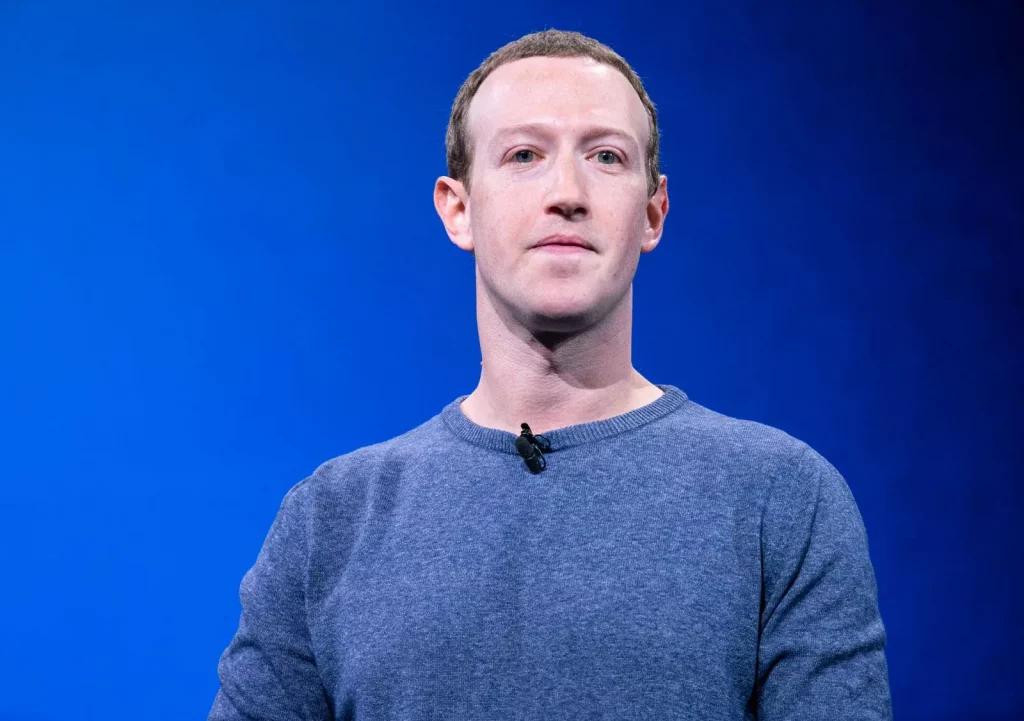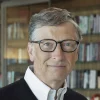Mark Zuckerberg is one of the most influential figures in the tech world, best known as the co-founder and CEO of Facebook (now known as Meta), the world’s largest social media platform. Born on May 14, 1984, in White Plains, New York, Zuckerberg’s rise from a college student to a global tech mogul is a story of innovation, entrepreneurship, and controversy. His impact on technology, communication, and business has made him a household name across the globe.
Early Life and Education
Mark Zuckerberg grew up in Dobbs Ferry, a small town in New York, in a well-educated and supportive family. His father, Edward Zuckerberg, was a dentist, and his mother, Karen Zuckerberg, was a psychiatrist. Mark showed an early interest in computers and programming, which his father encouraged by teaching him Atari BASIC Programming when he was just 12 years old. By his teenage years, Zuckerberg had developed his own messaging program called “ZuckNet,” which allowed his family members to communicate with one another in their home and office.
Zuckerberg attended Phillips Exeter Academy, a prestigious private school, where he excelled in both academics and extracurricular activities like fencing. He also began developing computer programs as a hobby. His first notable creation was a music player called “Synapse Media Player,” which used artificial intelligence to predict users’ music preferences. This project drew the attention of major tech companies like Microsoft and AOL, both of which offered to buy the software and hire Zuckerberg. However, he turned down these offers to focus on his education.
Harvard Years and the Birth of Facebook
In 2002, Zuckerberg enrolled at Harvard University, where he studied psychology and computer science. While at Harvard, Zuckerberg quickly became known for his programming skills. In 2003, he developed a site called “Facemash,” a controversial platform that allowed students to compare photos of their peers and rate their attractiveness. Though the site was short-lived and faced backlash for privacy violations, it set the stage for Zuckerberg’s next venture.
In February 2004, Zuckerberg, along with his roommates Eduardo Saverin, Andrew McCollum, Dustin Moskovitz, and Chris Hughes, launched “TheFacebook” from their dorm room. Initially intended as a social network for Harvard students, it quickly expanded to other Ivy League schools and universities. The platform’s ability to connect people online and its user-friendly interface made it a huge success.
The Rise of Facebook
By the end of 2004, Facebook had reached over 1 million users and attracted the attention of investors. In 2005, venture capital firm Accel Partners invested $12.7 million in Facebook, which helped the company expand to more colleges, high schools, and eventually to the general public. As Facebook grew, it introduced new features such as the “Like” button, News Feed, and user profiles, further enhancing its popularity.
In 2006, Zuckerberg made a bold decision to open Facebook to anyone over the age of 13 with a valid email address. This move helped Facebook grow exponentially, making it one of the most widely used social media platforms in the world. By 2008, Facebook had surpassed MySpace as the leading social networking site, and by 2012, it had reached 1 billion active users. The same year, Facebook went public, with an initial public offering (IPO) that valued the company at $104 billion, making Zuckerberg one of the youngest billionaires in the world at just 28 years old.
Leadership and Expansion
Under Zuckerberg’s leadership, Facebook evolved from a simple social network into a global technology conglomerate. In 2014, Facebook acquired messaging platform WhatsApp and virtual reality company Oculus, further diversifying its product offerings. The company also purchased Instagram in 2012, which became one of the most popular photo-sharing platforms globally.
In 2021, Zuckerberg announced that Facebook would rebrand as “Meta,” reflecting the company’s shift towards building the metaverse—a virtual reality space where users can interact in immersive digital environments. This ambitious vision aims to revolutionize how people socialize, work, and play in a fully digital world.
Controversies and Challenges
Despite his success, Zuckerberg has faced numerous challenges and controversies throughout his career. Facebook has been criticized for its role in spreading misinformation, particularly during the 2016 U.S. presidential election and the COVID-19 pandemic. The platform has also been scrutinized for its handling of user privacy, most notably in the 2018 Cambridge Analytica scandal, where the personal data of millions of Facebook users was improperly accessed for political purposes.
Zuckerberg has appeared before the U.S. Congress multiple times to address these issues, defending Facebook’s policies and promising to make improvements. However, critics argue that the company has not done enough to curb the spread of harmful content, protect user data, or address concerns about the platform’s impact on mental health, particularly among teenagers.
Personal Life
In 2012, Zuckerberg married Priscilla Chan, whom he met while studying at Harvard. Chan, a pediatrician and philanthropist, has played a significant role in Zuckerberg’s personal and professional life. Together, they have two daughters, Maxima (born in 2015) and August (born in 2017).
In 2015, Zuckerberg and Chan pledged to donate 99% of their Facebook shares—valued at over $45 billion at the time—to charitable causes through the Chan Zuckerberg Initiative, which focuses on advancing human potential and promoting equality in areas like health, education, and scientific research.
Legacy and Future
Mark Zuckerberg’s legacy is still being written. As the driving force behind one of the most influential companies in the world, he has changed the way people communicate, connect, and share information. Facebook (Meta) has become a cornerstone of modern social media, and Zuckerberg’s vision for the metaverse suggests that he plans to continue pushing the boundaries of technology.
Though his leadership has not been without controversy, Zuckerberg’s impact on the tech industry and the world at large is undeniable. He remains one of the most powerful figures in the tech world and continues to shape the future of digital interaction.
Conclusion
Mark Zuckerberg’s journey from a Harvard student with a small social networking idea to the CEO of a multi-billion-dollar tech empire is a testament to his vision, determination, and ability to navigate the complexities of the tech industry. As Meta expands into new technological frontiers, Zuckerberg’s influence on the digital age will only continue to grow.
created with chatGPT



